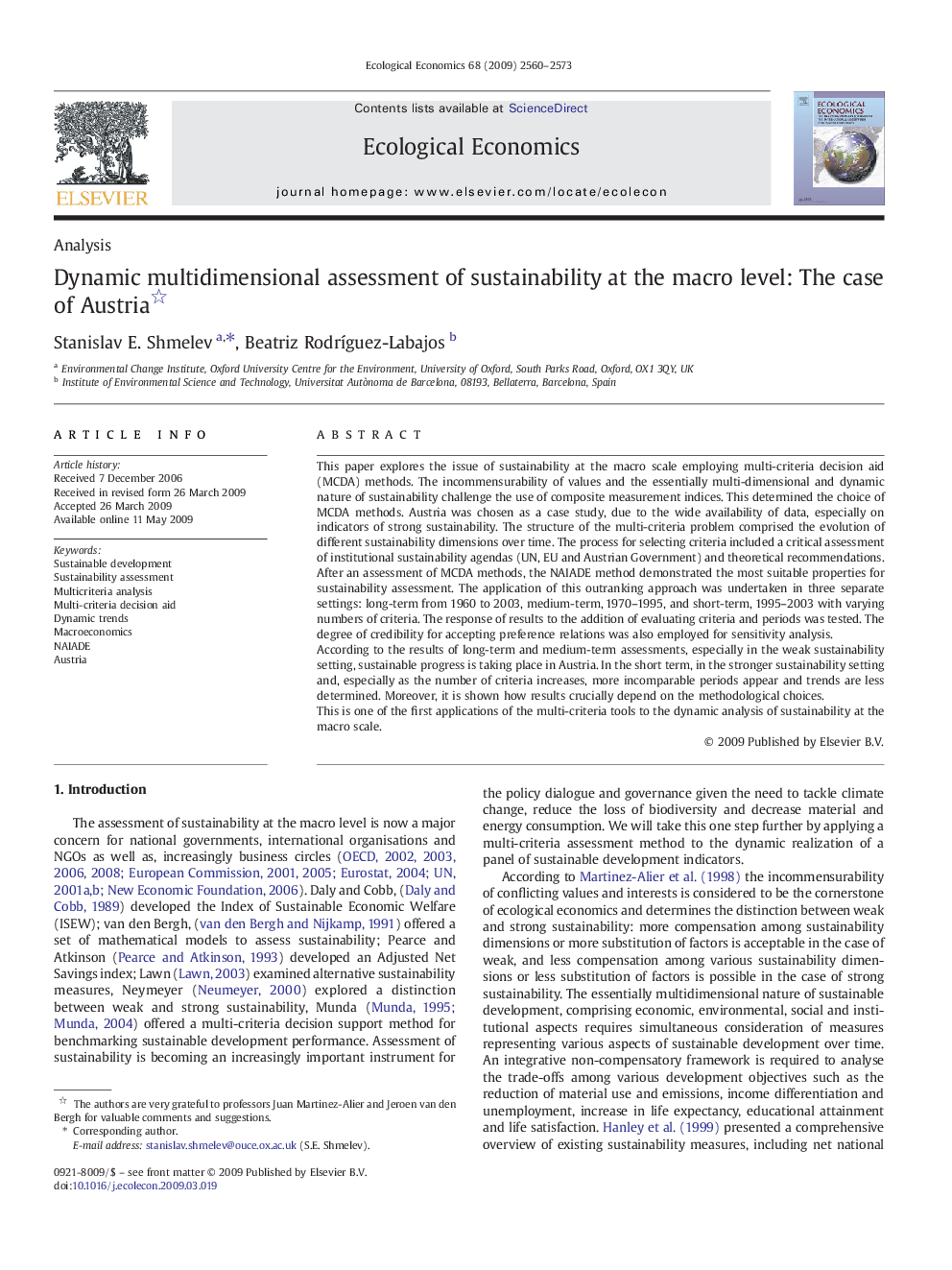| Article ID | Journal | Published Year | Pages | File Type |
|---|---|---|---|---|
| 5051284 | Ecological Economics | 2009 | 14 Pages |
This paper explores the issue of sustainability at the macro scale employing multi-criteria decision aid (MCDA) methods. The incommensurability of values and the essentially multi-dimensional and dynamic nature of sustainability challenge the use of composite measurement indices. This determined the choice of MCDA methods. Austria was chosen as a case study, due to the wide availability of data, especially on indicators of strong sustainability. The structure of the multi-criteria problem comprised the evolution of different sustainability dimensions over time. The process for selecting criteria included a critical assessment of institutional sustainability agendas (UN, EU and Austrian Government) and theoretical recommendations.After an assessment of MCDA methods, the NAIADE method demonstrated the most suitable properties for sustainability assessment. The application of this outranking approach was undertaken in three separate settings: long-term from 1960 to 2003, medium-term, 1970-1995, and short-term, 1995-2003 with varying numbers of criteria. The response of results to the addition of evaluating criteria and periods was tested. The degree of credibility for accepting preference relations was also employed for sensitivity analysis.According to the results of long-term and medium-term assessments, especially in the weak sustainability setting, sustainable progress is taking place in Austria. In the short term, in the stronger sustainability setting and, especially as the number of criteria increases, more incomparable periods appear and trends are less determined. Moreover, it is shown how results crucially depend on the methodological choices.This is one of the first applications of the multi-criteria tools to the dynamic analysis of sustainability at the macro scale.
